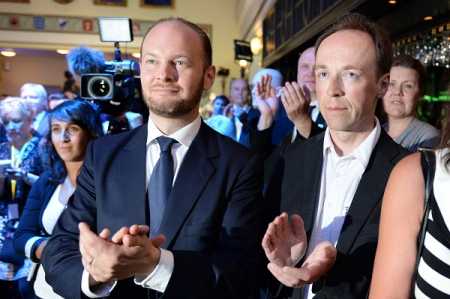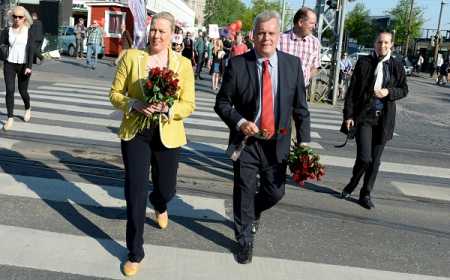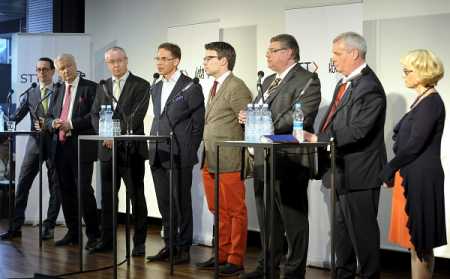Tue, 27 May, 2014 12:39:15 AM EU parliamentary polls results 2014 SDP becomes a big loser FTimes-Xinhua Report by Elina Xu, May 27
In the voting held in Finland last Sunday, the Finns Party won 12.9 percent of the votes, and will send two MEPs to the European Parliament, one seat more than in the last EP election in 2009. Founded in 1995, the Finns Party, previously known as the True Finns, is a populist and nationalist political party in Finland. Timo Soini has been the leader of the party since 1997. The Finns Party has gradually seized ground in the Finnish political circle since 1999. The voting rate in the parliamentary election received by the party has surged from 0.1 percent in 1999 to 19.1 percent in 2011.
The most important reason behind the rise of the party can be attributed to the gloomy economic situation both in Finland and in the euro zone. According to Soini, the party chair, the party's view on Greece and the EU was one of the fortuitous reasons for the continuing surge of his party. During the euro zone crisis, the Finns Party had expressed opposition to providing bailouts to the heavily indebted countries for several times. The view catered for many Finns' feeling of "why we have to help those who made their own mistakes?" while the Finnish economy fell into recession. The party has also gained ground rapidly in the EP elections with voting rate soaring from 0.5 percent to 9.8 percent in 2009, and entered into the EP historically for the first time with one seat. In the latest EU election, the Finns party expanded further and won 3.1 percent of the ballots more than in 2009, and obtained one more seat in the EP. "We doubled our share," Soini said when claiming a win for his party after the voting results were announced on Sunday night.
In addition, Jussi Halla-aho, a hard-right MP from the Finns Party, who made his name by criticizing Finland's immigration policy, surprisingly won the second highest votes and will become a EMP in the new European Parliament. Concerning Halla-aho's success, Paavo Lipponen, former prime minister of Finland and ex-chairman of the Social Democratic Party (SDP), believed that Halla-aho represents the extreme right, and his success is considered as a disgrace to Finland, according to a report made by the Finnish daily Helsingin Sanomat. As described by Reuters in a new release, "across the continent, anti-establishment parties of the far right and hard left more than doubled their representation." The similar phenomenon also appeared in Finland. In addition to the rise of the far right Finns party, the Left Alliance received 9.3 percent of the votes, 3.4 percentage points more than last EU election, regaining one seat that lost in last election in 2009. However, the general situation of Finland in the European Parliament will not change much, since the conservative National Coalition Party and the Center Party still remain their dominating positions. Both the parties got three seats each in the next EP, the same as in 2009. In contrary, SDP become a big loser in the election with only 12.3 percent of ballots, 5.2 percent lower than in 2009. As Borg commented, "alarm bell rings" for SDP, as it is no longer a big party, but a middle caste. Borg also stated that the EP election is a clear projection of the upcoming parliamentary election of Finland, which will be held in next spring. In his opinion, the distribution of votes in the next parliamentary election will remain similar. In the 2014 European Parliament election in Finland, a total of 251 candidates from 14 Finnish political parties competed for only 13 out of 751 seats of the new European Parliament. More than 4.4 million Finns were eligible to vote in the election, and the voter turnout was 40.9 percent, slightly higher than 40.3 percent in 2009. The European Parliament elections 2014 were held during May 22 to 25 to elect a total of 751 members from 28 EU countries. Twenty-one EU member states including Finland voted on Sunday to decide the formation of the new EP for the next term from 2014 to 2019.
More News
|
|
Finland Times
| Sunday, 14 December, 2025 |




